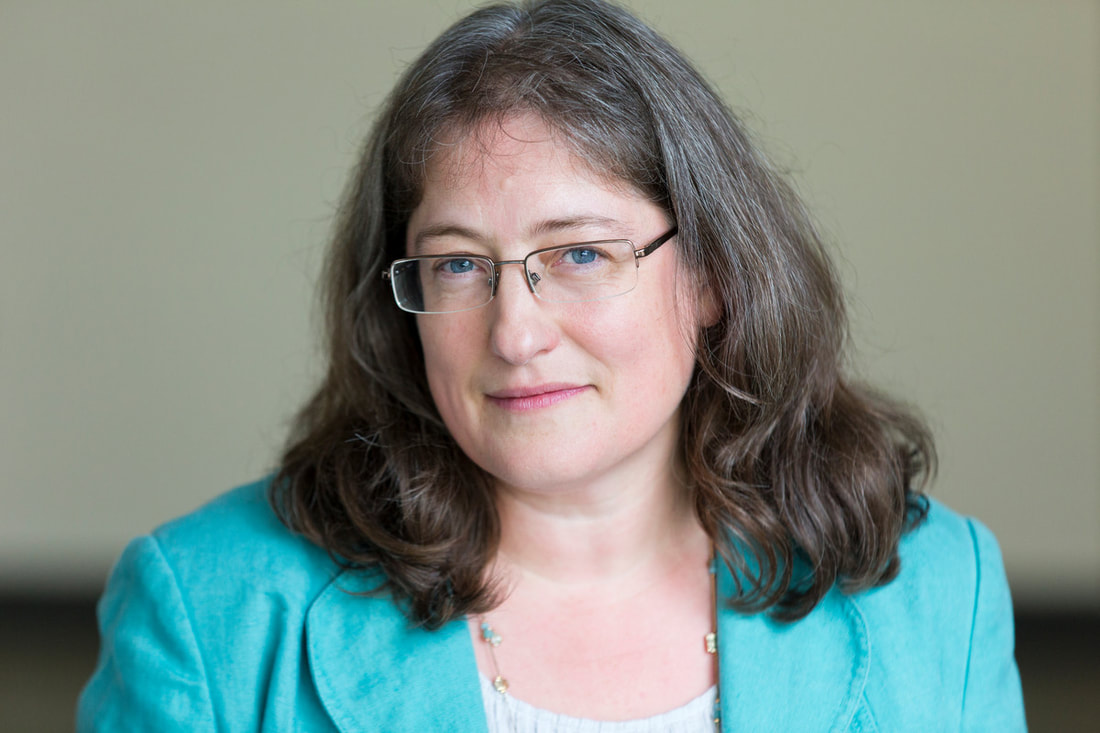Keynote Talk - Professor Diana Wallace
|
Beyond the stopped clock: remembering the past to re-imagine the future
The small stopped clock recovered from the Aberfan disaster in 1966 and now on display in the ‘Wales is…’ gallery at Amgueddfa Cymru - National Museum Wales is a potent symbol of the need to remember. The history of Wales includes many such symbols - Treweryn, Mynydd Epynt, the 1984-5 miners’ strike – which seem to affirm R.S. Thomas’s much-quoted assertion that ‘there is no present in Wales/and no future;/ there is only the past,/ brittle with relics’. The stopped clock also offers a suggestive image of the Covid-19 pandemic, a two-year period when normal life has been suspended. But the key questions now facing us are to do with how we move forward in time. The aim of this lecture is to explore how the study of Welsh writing in English can contribute to an effective and vibrant re-imagining of the future for Wales. |
Diana Wallace is Professor of English Literature at the University of South Wales. Her publications include Christopher Meredith (2018), Female Gothic Histories: Gender, History and the Gothic (2013) and The Woman’s Historical Novel: British Women Writers, 1900-2000 (2005). She is currently editing Margiad Evans’s Autobiography for Honno’s Welsh Women’s Classics and working on a monograph, Modernism and Historical Fiction: Writing the Past.
Mae’r cloc bychan sydd wedi stopio ar amser trychineb Aberfan ym 1966 ac sydd bellach yn cael ei arddangos yn oriel ‘Wales is…’ yn Amgueddfa Cymru yn symbol cryf o’r angen i gofio. Mae hanes Cymru’n cynnwys llawer o symbolau o’r fath – Treweryn, Mynydd Epynt, streic y glowyr 1984-5 – sydd fel petaent yn cadarnhau honiad enwog R.S. Thomas ‘there is no present in Wales/and no future;/ there is only the past,/ brittle with relics’. Mae'r cloc ar stop hefyd yn cynnig delwedd awgrymog o bandemig Covid-19, cyfnod o ddwy flynedd pan fu bywyd normal wedi'i atal. Ond mae'r cwestiynau allweddol sy'n ein hwynebu nawr yn ymwneud â sut yr ydym yn symud ymlaen mewn amser. Bwriad y ddarlith hon yw archwilio sut y gall astudio ysgrifennu Saesneg Cymreig gyfrannu at ail-ddychmygu dyfodol Cymru mewn modd effeithiol a chyffrous.
Mae Diana Wallace yn Athro Llenyddiaeth Saesneg ym Mhrifysgol De Cymru. Mae ei chyhoeddiadau’n cynnwys Christopher Meredith (2018), Female Gothic Histories: Gender, History and the Gothic (2013) a The Woman’s Historical Novel: British Women Writers, 1900-2000 (2005). Ar hyn o bryd mae’n golygu Hunangofiant Margiad Evans ar gyfer Clasuron Merched Cymru Honno ac yn gweithio ar fonograff, Moderniaeth a Ffuglen Hanesyddol: Ysgrifennu’r Gorffennol.
Mae’r cloc bychan sydd wedi stopio ar amser trychineb Aberfan ym 1966 ac sydd bellach yn cael ei arddangos yn oriel ‘Wales is…’ yn Amgueddfa Cymru yn symbol cryf o’r angen i gofio. Mae hanes Cymru’n cynnwys llawer o symbolau o’r fath – Treweryn, Mynydd Epynt, streic y glowyr 1984-5 – sydd fel petaent yn cadarnhau honiad enwog R.S. Thomas ‘there is no present in Wales/and no future;/ there is only the past,/ brittle with relics’. Mae'r cloc ar stop hefyd yn cynnig delwedd awgrymog o bandemig Covid-19, cyfnod o ddwy flynedd pan fu bywyd normal wedi'i atal. Ond mae'r cwestiynau allweddol sy'n ein hwynebu nawr yn ymwneud â sut yr ydym yn symud ymlaen mewn amser. Bwriad y ddarlith hon yw archwilio sut y gall astudio ysgrifennu Saesneg Cymreig gyfrannu at ail-ddychmygu dyfodol Cymru mewn modd effeithiol a chyffrous.
Mae Diana Wallace yn Athro Llenyddiaeth Saesneg ym Mhrifysgol De Cymru. Mae ei chyhoeddiadau’n cynnwys Christopher Meredith (2018), Female Gothic Histories: Gender, History and the Gothic (2013) a The Woman’s Historical Novel: British Women Writers, 1900-2000 (2005). Ar hyn o bryd mae’n golygu Hunangofiant Margiad Evans ar gyfer Clasuron Merched Cymru Honno ac yn gweithio ar fonograff, Moderniaeth a Ffuglen Hanesyddol: Ysgrifennu’r Gorffennol.
Outline Programme
Friday
Saturday
- 4.00: Tea and check-in
- 5.00 - 6.30: Welcome drinks and book showcase
- 7.00 - 8.00: Dinner
- 8.15 - 9.15: Keynote - Prof Diana Wallace
Saturday
- From 8.00: Breakfast
- 9.00: Panel 1 "Histories and Futures I"
- 10.00: Panel 1 "Histories and Futures II"
- 11.00: Coffee
- 11.30: Panel 2 "Spectres, Shibboleths and the Ends of Man: Derridean approaches to Welsh Writing in English"
- 1.00 - 1.55: Lunch
- 2.00: Panel 3 "Translocations"
- 3.30 - 4.00: Tea and departures
Full Programme
Register here for the live stream
Book your place
|
To book your place, please complete the booking and payment process.
|
Conference Rates
Full Rates (early-bird rates)
Full event, including Friday night board: £120
Friday only (no board): £25
Saturday only (no board): £50
Rates for Students, Unwaged and Low-Waged Delegates (early-bird rates)
Full event, including Friday night board: £70
Friday only (no board): £15
Saturday only (no board): £35
For full details, please see the payment pages during the booking process. For delegates who wish to enquire about financial support to offset conference fees, please contact the Association Treasurer.
Full event, including Friday night board: £120
Friday only (no board): £25
Saturday only (no board): £50
Rates for Students, Unwaged and Low-Waged Delegates (early-bird rates)
Full event, including Friday night board: £70
Friday only (no board): £15
Saturday only (no board): £35
For full details, please see the payment pages during the booking process. For delegates who wish to enquire about financial support to offset conference fees, please contact the Association Treasurer.
Call for Papers
As we come out of the pandemic years the conference theme encourages us to think about the directions that the study of Welsh Writing in English should take in the coming period. Papers can be conceptual and theoretical in approach, or they may offer a particular project or analysis of an author, genre or period as an example of what has been achieved and what remains to be done. Areas of potentiality, of avenues indicated but not followed, in the works of critics in the field would also be welcome, as would approaches and methodologies drawn from the disparate fields of digital humanities, computing, environmentalism, the diverse areas of gender and ethnic studies and so on.
Those wishing to present a paper suitable for a 20-minute reading may submit an abstract (maximum one-page).
Proposals for thematic sessions, panel presentations, or other formats in English or Welsh are also welcome. Please include a brief biography with your abstract submission.
Proposals for thematic sessions, panel presentations, or other formats in English or Welsh are also welcome. Please include a brief biography with your abstract submission.
This year’s conference will be hybrid. Please indicate whether you would like to:
* deliver in person at Gregynog
* deliver via Zoom
* no preference whether in person or Zoom
If we cannot accommodate everyone in person, we will add a further programme via Zoom (date to be confirmed).
Deadline
Submit abstracts or session proposals to the conference team by no later than 31 March 2022 to [email protected]
Participants will be notified by 8 April 2022.
Participants will be notified by 8 April 2022.
Conference Team
Kirsti Bohata, Matt Jarvis, Sarah Morse, Daniel Williams
Book your place
|
To book your place, please complete the booking and payment process.
Early-bird rates apply for bookings made up to and including 1 April 2022!! |
Latest news and discussions
For all AWWE discussions, please use the hashtage #awwechat on Twitter.
Contact
To contact the AWWE Committee with any queries or suggestions, please email comm[email protected]


